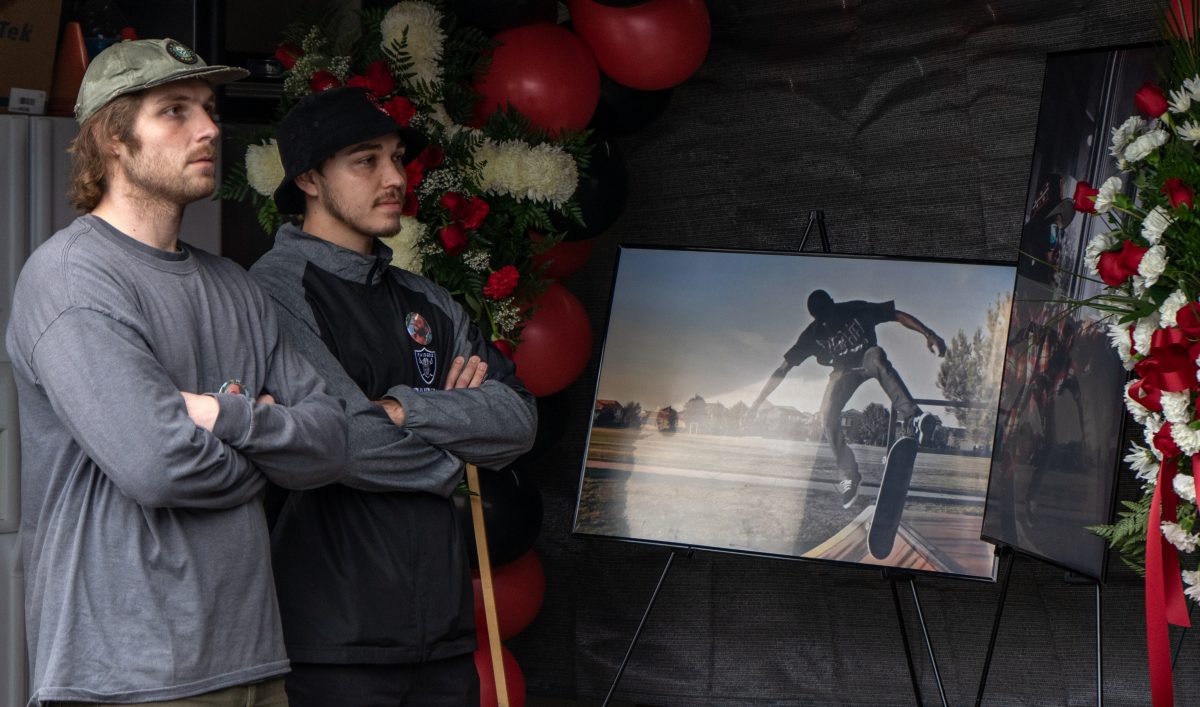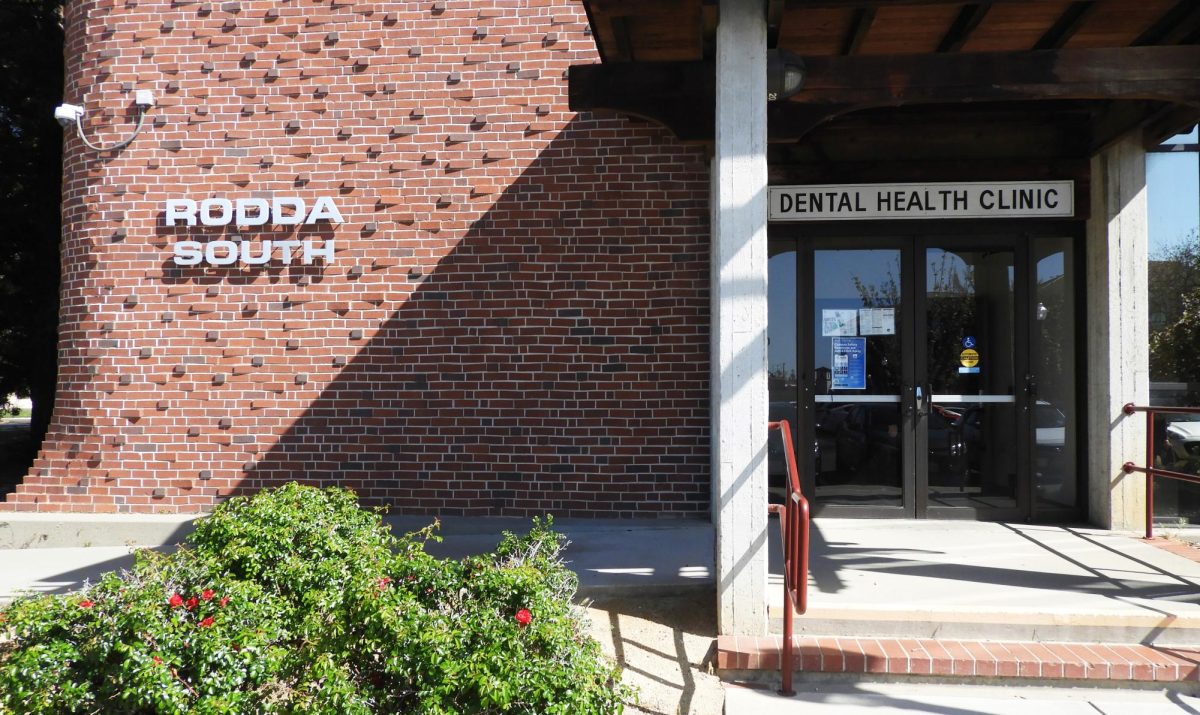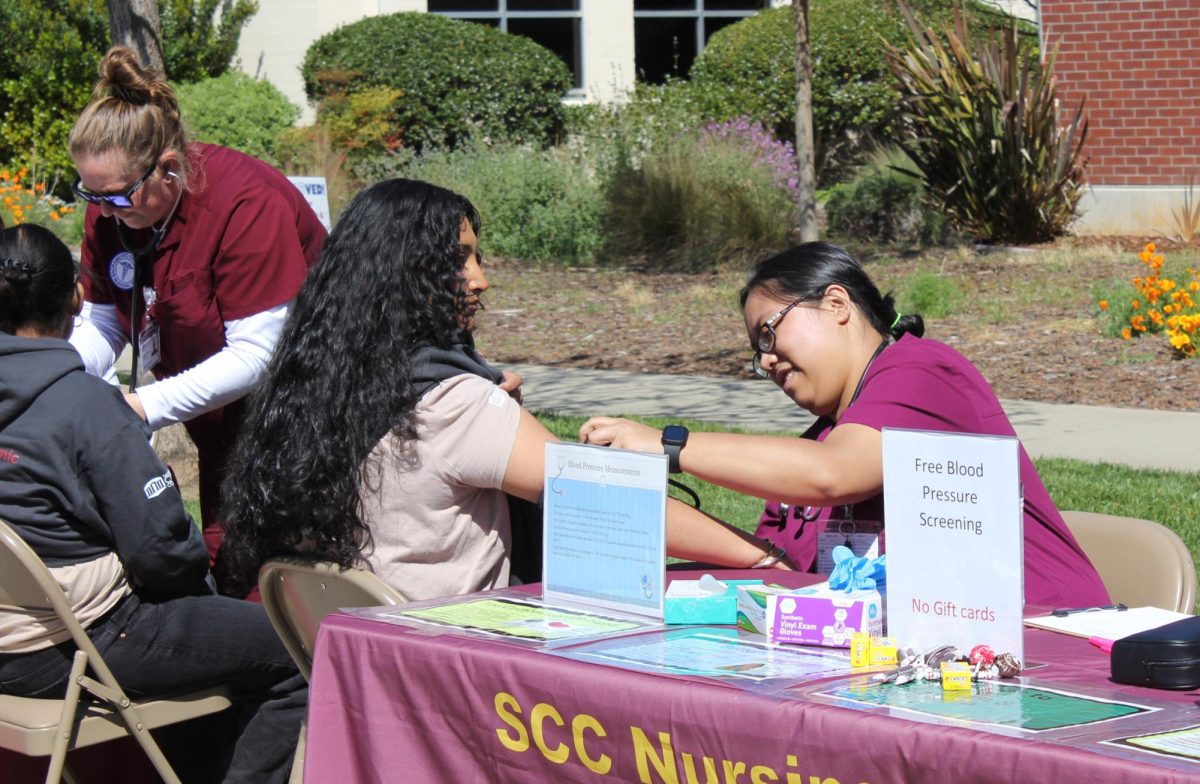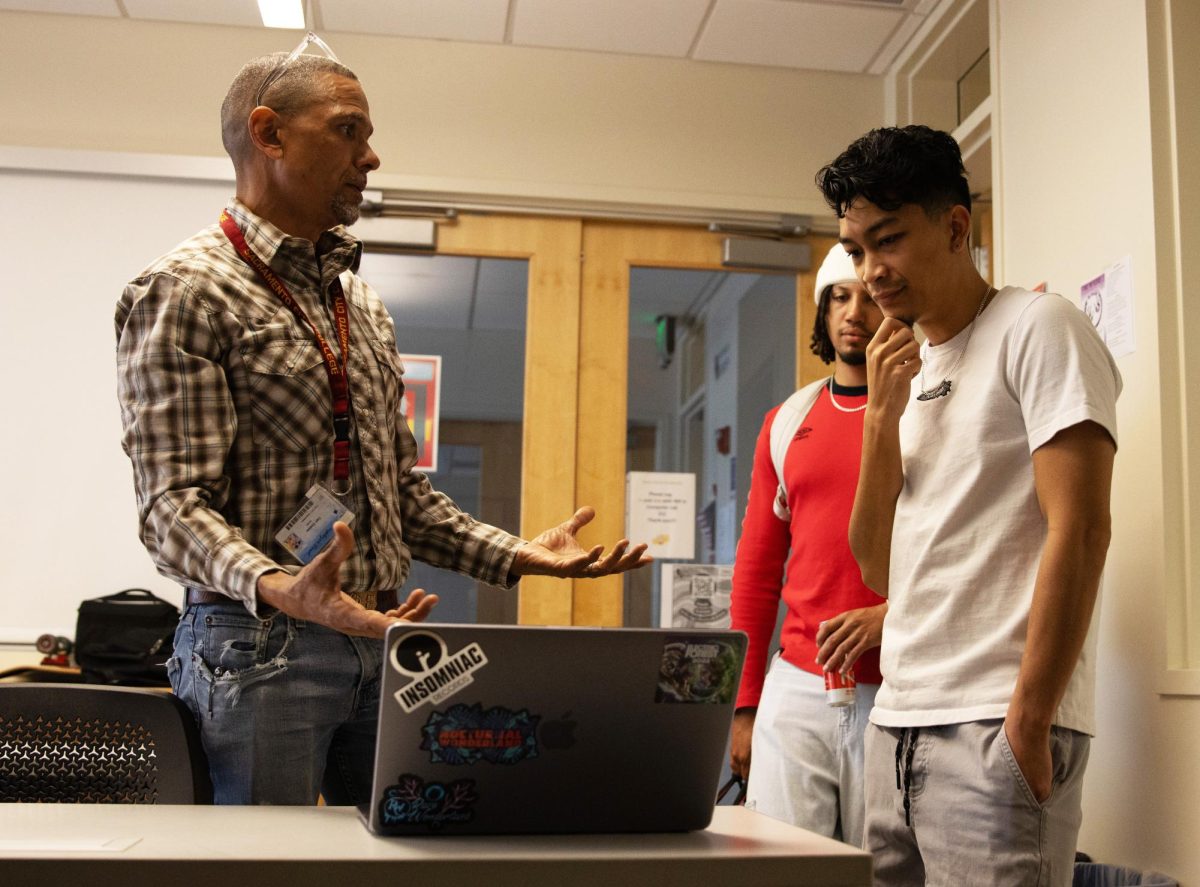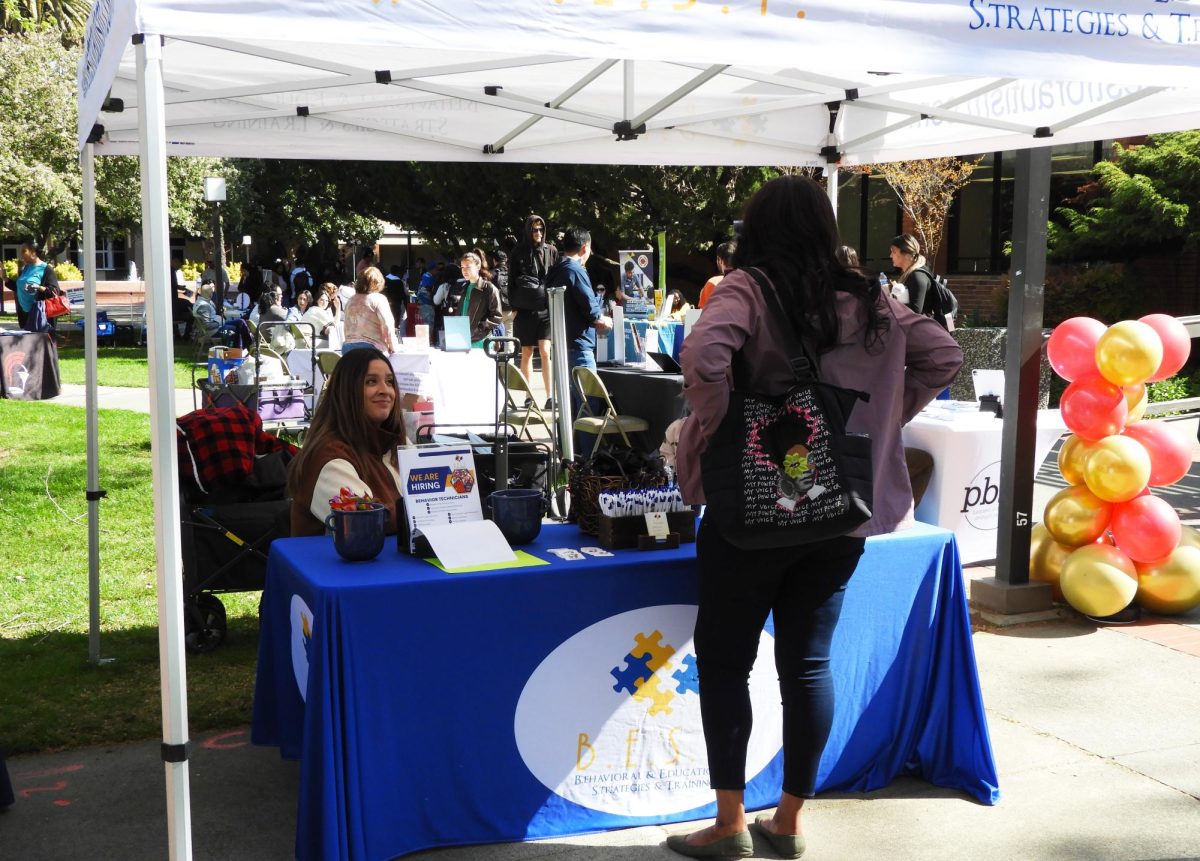Editor’s note: photos updated 4/4
John Pfanner, a third-semester nursing student at City College, still remembers the words Nursing Director Carel Mountain gave as the pandemic forced everything to change last March.
“She said it’s like being on a runway of an airplane, and you’re building the airplane as you’re about to take off,” said Pfanner. “I think that sums up COVID in itself.”
As other programs shut down, Pfanner said he and his classmates were able to receive their clinical hours thanks to the conversion to virtual learning implemented by nursing department faculty. Still, he noted that community outreach was limited.
“I think all of us as nurses want to help and get back in the community,” said Pfanner.
This semester, they did. Beginning Feb. 19, Pfanner, along with students from the registered nursing and vocational nursing programs, were able to participate in community outreach by administering two-shot COVID-19 vaccines at community clinics in partnership with Pucci’s Pharmacy.

“We’ve given back already about 23 volunteer hours, and I’ve estimated we’ve vaccinated about 800 individuals — and counting,” said Rich Maeda, an adjunct assistant nursing professor. “These are all [done by] student volunteers.”
The opportunity gives students experience working with the public, enhancing training they’ve already received through clinicals, Maeda said. Other benefits include collaborating directly with a pharmacist and practicing proper injection techniques.
“They’re really excited about going out,” said Maeda. “They’re seeing a process of health care from a nursing standpoint that they normally would not see unless something like this happens again.”
Student nurses also work alongside other community members at vaccination sites who teach the students to collaborate with fellow volunteers, said Helen Rice, assistant director and supervisor of the vocational nursing program.
“It’s a really good opportunity for students to see not only what we can do for our community, but they get a lot of positive feedback working now with this team of people,” said Rice.
The vaccination clinics are typically held at long-term care facilities, according to Nursing Professor Darreis Lucien.
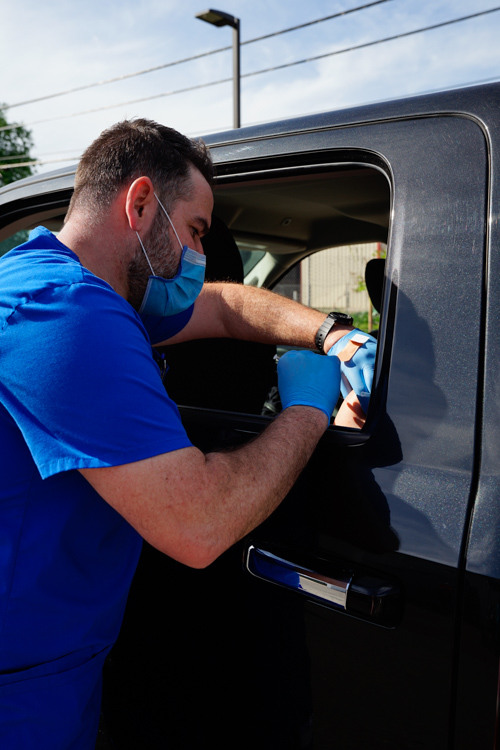
“We would [vaccinate] the staff along with the residents at those locations,” said Lucien. “None of them have actually been at the pharmacy.”
According to Rice, the clinics Pucci’s pharmacy could continue through July, allowing students to continue volunteering in the summer.
“This is indefinite as we see it,” said Rice.
Though City College nursing faculty are present at the vaccination clinics, students were required before volunteering to complete virtual training modules created by the CDC, said Maeda. In training, students learned the difference between the Pfizer and Moderna vaccines, how to store doses and administer deltoid injections.
“We first had to get our students up to speed with some training measures,” said Maeda. “That way they were familiar before they went out and actually give live vaccinations.”
“[The nursing department wants] to make sure that we’re giving safe student providers into a community organization,” Rice said. “It’s pretty amazing to see them at work. We’re really proud of how they perform.”
Lucien noted that diversity plays another large part in the vaccinations clinics.
“You see all age groups at these clinics. You see all ethnicities,” said Lucien. “That’s what we teach about. That is what we represent at Sacramento City College.”
Clinics provide an opportunity for City College nurses to represent and serve the community, simultaneously encouraging others to receive vaccinations, Lucien said.
“I hope my presence and our students’ presence as nurses are going to help build the trust in receiving the vaccine,” said Lucien. “We at Sacramento City College use this opportunity to educate and to help dispel misinformation about COVID-19, especially in the Black and the brown community, who has its reservations.”
A long-time patron of Pucci’s Pharmacy, Lucien prompted its partnership with City College after noticing a need for assistance at one of the pharmacy’s vaccination clinics.
“I started thinking of all the things I could do to help,” said Lucien. “Our students love to go out into the community and work. In the pandemic, what better time is it to learn so many aspects of healthcare in a community?”
With that in mind, Lucien said she went to Nursing Director Carel Mountain in February to ask if student involvement was a possibility.
“It’s a two-fold process,” said Mountain. “The school has to have a contract with [the agency]. Once we have a contract in place with our district, I have to file with the board of vocational nursing and the board of registered nursing for them to approve a clinical site.”
The next vaccination opportunity for nursing students will be at a drive-through clinic at Natomas High School, with participation open from March 25 to May 13, according to Maeda.
“They average about 1,500 shots per day each time they do this clinic,” said Maeda. “That’s where our students can come into play.”
For nursing student Jenna Yates, clinics are also an opportunity to enhance future career prospects.
“Being out in the community and volunteering helps to set you apart from others when you go for a job interview,” said Yates. “Getting the experience and the practice helping patients, outside of the clinical experience, I think is helpful.”
However, Yates said connecting with members of the community has been the most memorable aspect.
“It makes me feel like I can make a difference,” she said. “That I can be part of something bigger than myself.”

